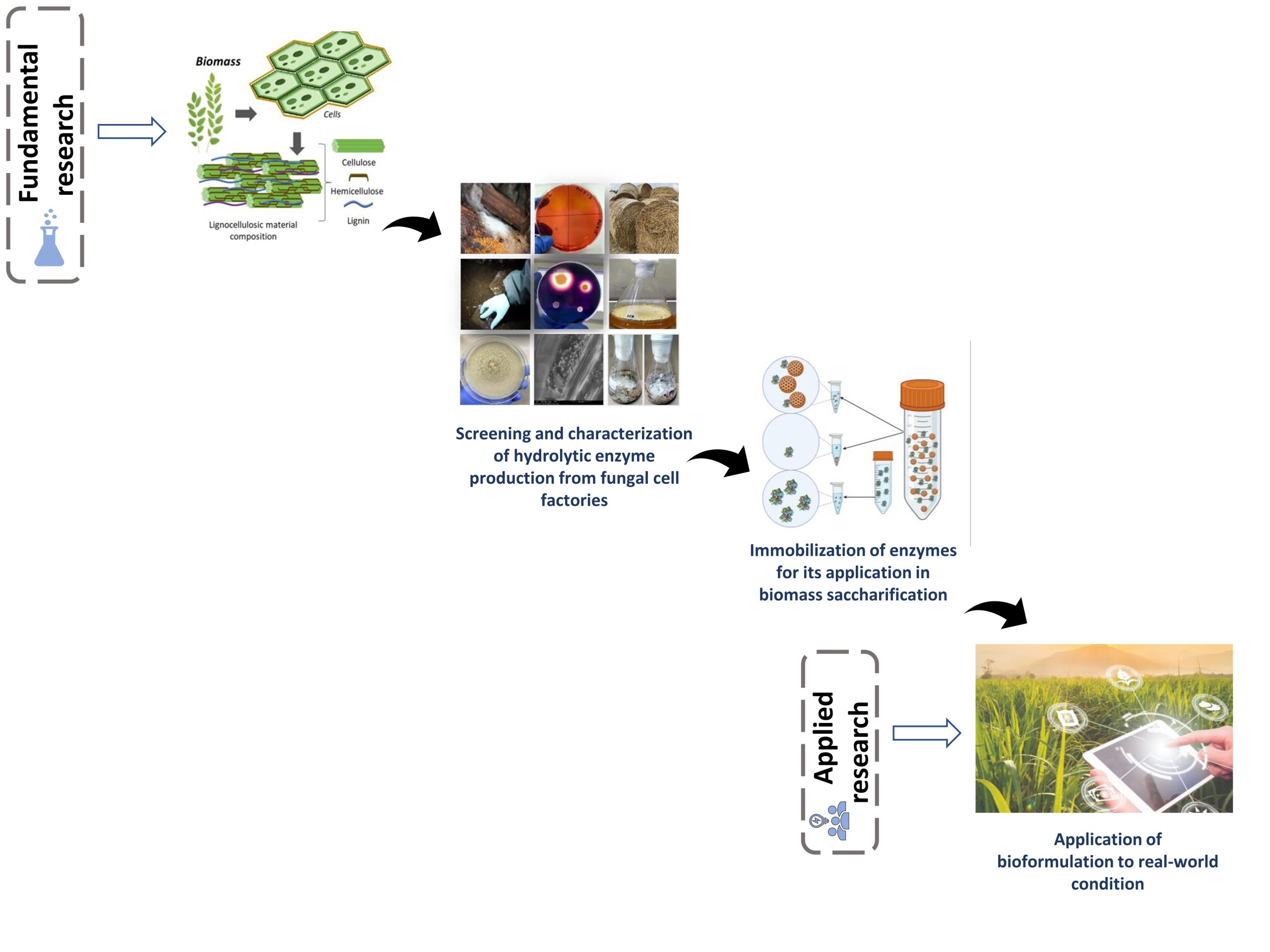Mikroorganizmy lignocelulolityczne do waloryzacji odpadów

27 09 2024
Kategoria: Seminarium IM
Serdecznie zapraszamy na seminarium instytutowe: w poniedziałek 7 października o godz. 14.00 mgr Namrata Joshi z Zakładu Mikrobiologii i Biotechnologii Środowiskowej przedstawi wyniki wchodzące w skład rozprawy doktorskiej pt. „ „Bioprospecting of lignocellulolytic microorganisms and their enzymes for valorization of waste biomass”.
Abstract:
This study addresses key challenges in converting lignocellulosic biomass (LCB) by providing microbiological solutions for lignocellulosic biorefineries. Two potent fungal strains, Aspergillus fumigatus ZS_AF and Penicillium fuscoglaucum JAM-1, were isolated, optimized, and studied for their ability to produce hydrolytic enzymes such as cellulases, xylanases, and β-glucosidases using pine sawdust and rapeseed cake in solid-state fermentation. Enzyme activity was significantly enhanced using response surface methodology (RSM) and one-variable-at-a-time (OVAT) techniques. Secretome profiling revealed the presence of diverse carbohydrate-active enzymes (CAZymes) crucial for biomass degradation. Additionally, three thermostable lytic polysaccharide monooxygenases (LPMOs) from Cellulosimicrobium cellulans PW were heterologously expressed, improving cellulose degradation efficiency when combined with commercial cellulases. Enzyme immobilization on faujasite Na-X zeolite increased enzyme stability, pH tolerance, and reusability. The study also demonstrated the use of a fungal consortium including A. fumigatus ZS_AF, P. fuscoglaucum JAM-1, and Trichoderma deliquescens in composting lignocellulosic waste, offering a sustainable approach to biomass valorization and closing the resource loop for biorefineries.
